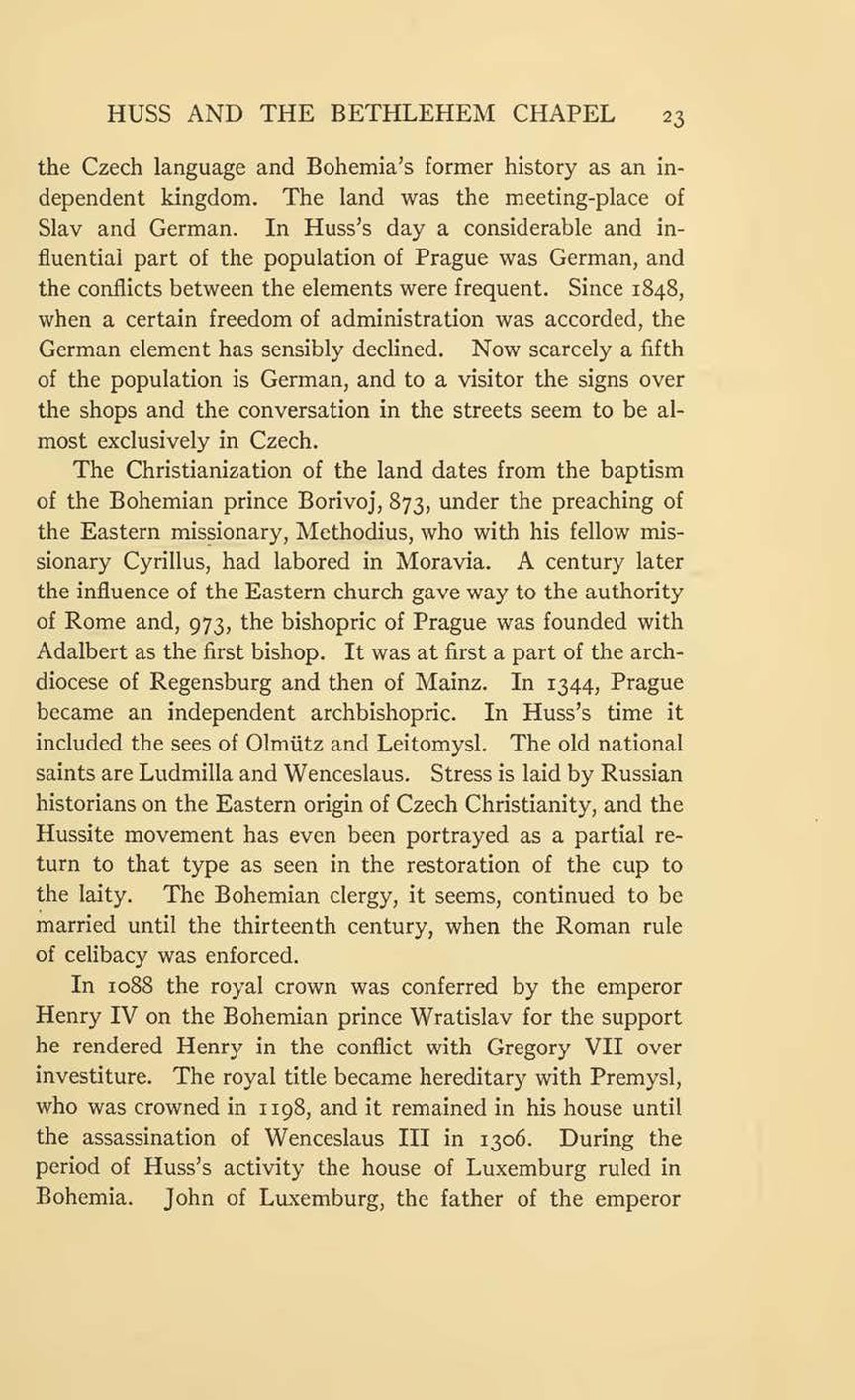the Czech language and Bohemia’s former history as an independent kingdom. The land was the mecting-place of Slav and German. In Huss’s day a considerable and influential part of the population of Prague was German, and the conflicts between the elements were frequent. Since 1848, when a certain freedom of administration was accorded, the German clement has sensibly declined. Now scarcely a fifth of the population is German, and to a visitor the signs over the shops and the conversation in the streets seem to be almost exclusively in Czech.
The Christianization of the land dates from the baptism of the Bohemian prince Borivoj, 873, under the preaching of the Eastern missionary, Methodius, who with his fellow missionary Cyrillus, had labored in Moravia. A century later the influence of the Eastern church gave way to the authority of Rome and, 973, the bishopric of Prague was founded with Adalbert as the first bishop. It was at first a part of the archdiocese of Regensburg and then of Mainz. In 1344, Prague became an independent archbishopric. In Huss’s time it included the sees of Olmütz and Leitomysl. The old national saints are Ludmilla and Wenceslaus. Stress is laid by Russian historians on the Eastern origin of Czech Christianity, and the Hussite movement has even been portrayed as a partial return to that type as seen in the restoration of the cup to the laity. The Bohemian clergy, it seems, continued to be married until the thirteenth century, when the Roman rule of celibacy was enforced.
In 1088 the royal crown was conferred by the emperor Henry IV on the Bohemian prince Wratislav for the support he rendered Henry in the conflict with Gregory VII over investiture. The royal title became hereditary with Premysl, who was crowned in 1198, and it remained in his house until the assassination of Wenceslaus III in 1306. During the period of Huss’s activity the house of Luxemburg ruled in Bohemia. John of Luxemburg, the father of the emperor
